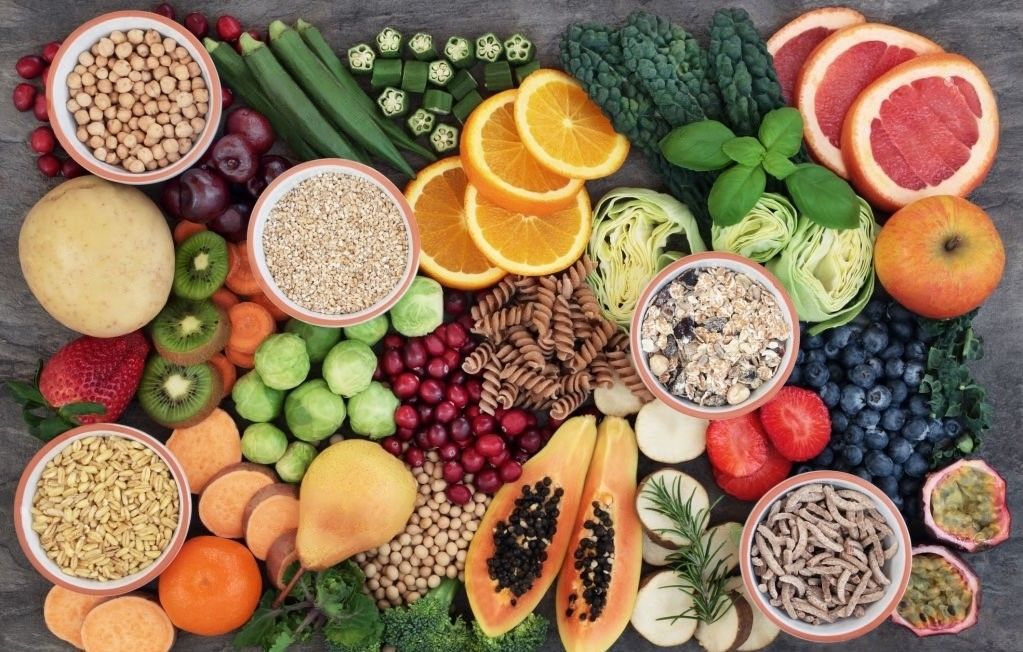Smart Diet Tips for Hormonal Balance and Well-Being
By including beneficial fats, phytonutrients, and vital micronutrients, all the while giving importance to regulating blood sugar and maintaining gut health, people can effectively encourage the achievement of a balanced hormonal state.

Maintaining hormonal balance is crucial for overall well-being, and diet plays a significant role in achieving this equilibrium. The Indian diet is rich in diverse flavors and ingredients that can be harnessed to support hormonal health. This blog explores smart diet tips backed by scientific research that can help Indian individuals achieve hormonal balance and enhance their well-being.
Understanding Hormonal Balance: Hormones act as messengers in the body, influencing various physiological processes, including metabolism, mood regulation, reproduction, and growth. An imbalance in hormones can lead to a range of health issues. A well-structured diet can contribute to maintaining optimal hormonal levels.
Balancing Macronutrients for Hormonal Health
- Incorporate Healthy Fats: Healthy fats, such as avocados, nuts, and olive oil, are essential for hormone production. Omega-3 fatty acids, found in fatty fish like salmon, support brain health and aid in regulating hormones like insulin and leptin.
- Complex Carbohydrates: Choose complex carbohydrates like whole grains, legumes, and vegetables. These carbohydrates provide sustained energy, stabilize blood sugar levels, and prevent insulin spikes that can disrupt hormonal balance.
- Adequate Protein Intake: Protein is the building block for hormones. Include lean sources like poultry, eggs, and lentils to ensure a steady supply of amino acids required for hormone synthesis.
Incorporating Phytonutrients
- Colorful Vegetables and Fruits: Vibrantly colored vegetables and fruits are rich in phytonutrients like antioxidants and polyphenols. These compounds combat oxidative stress and inflammation, supporting hormonal health.
- Cruciferous Vegetables: Broccoli and cauliflower contain compounds like indole-3-carbinol that aid in estrogen metabolism, promoting hormonal balance.
Blood Sugar Regulation
- Fiber-Rich Foods: High-fiber foods like whole grains, beans, and vegetables slow down digestion, preventing rapid spikes in blood sugar levels that can disrupt insulin function.
- Cinnamon: Cinnamon has been shown to improve insulin sensitivity, assisting in blood sugar regulation.
Essential Micronutrients
- Vitamin D: Adequate vitamin D levels are linked to healthy hormonal function. Sun exposure and vitamin D-rich foods like fortified dairy and fatty fish contribute to maintaining optimal levels.
- Zinc: Zinc plays a role in hormone production and regulation. Sources include nuts, seeds, whole grains, and legumes.
Supporting Gut Health
- Fiber and Prebiotics: Fiber-rich foods and prebiotics found in garlic, onions, and bananas support gut health. A healthy gut microbiome influences hormonal balance and metabolism.
- Probiotics: Fermented foods like yogurt and kefir provide probiotics that enhance gut health, potentially affecting hormones like insulin and serotonin.
Mindful Eating and Stress Management
- Hydration: Staying hydrated supports various bodily functions, including hormone production and regulation. Herbal teas and infused water are excellent options.
- Mindful Eating: Practicing mindful eating reduces stress and promotes healthy digestion, positively impacting hormone balance.
Avoiding Harmful Additives
- Limit Processed Foods: Processed foods often contain harmful additives like trans fats and excess sugar. These additives can disrupt hormonal function and lead to weight gain.
- Avoid Excess Sugar: Excessive sugar consumption can lead to insulin resistance and hormonal imbalances. Opt for natural sweeteners like honey or stevia.
SUMMARY
A smart Indian diet for hormonal balance and well-being involves strategic dietary choices that support hormone production, regulation, and overall health. By incorporating healthy fats, phytonutrients, and essential micronutrients while prioritizing blood sugar regulation and gut health, individuals can promote optimal hormonal balance. Additionally, practicing mindful eating and avoiding harmful additives contribute to a holistic approach to well-being.
Jayti Shah is a Clinical Nutritionist with a master's degree in Clinical Nutrition and Dietetics. She is a member of the Indian Dietetic Association (IDA). Over the last 9 years, she has helped 400 clients in their clinical and weight loss journeys. She works with SocialBoat as a nutrition consultant.
At SocialBoat, we offer custom diet plans and guided workouts to help you achieve your goals in a 360-degree approach. Our gamified experience ensures that you don’t find workouts boring and we reward you for being consistent with your efforts.

REFERENCES
- Escobar-Morreale, H. F., & Santacruz, E. (2018). Reproductive and Metabolic Consequences of Polycystic Ovary Syndrome. International Journal of Endocrinology, 2018, 1-16.
- Mozaffarian, D., Hao, T., Rimm, E. B., Willett, W. C., & Hu, F. B. (2011). Changes in Diet and Lifestyle and Long-Term Weight Gain in Women and Men. New England Journal of Medicine, 364(25), 2392-2404.
- Rozenberg, S. (2019). Endocrine disruptors: new players in the pathophysiology of type 2 diabetes? Diabetes & Metabolism, 45(5), 386-387.
- Ismail, T., Sestili, P., & Akhtar, S. (2012). Pomegranate peel and fruit extracts: a review of potential anti-inflammatory and anti-infective effects. Journal of Ethnopharmacology, 143(2), 397-405.
- Bahrami, A., Zarghami, N., & Samani, L. N. (2020). Effect of Omega-3 Fatty Acids on Insulin Resistance in Women with Polycystic Ovary Syndrome: A Randomized Double-Blind Placebo-Controlled Clinical Trial. Iranian Journal of Medical Sciences, 45(2), 114-121.
- Shokoohi, M., Fatahi, S., Samadi, M., & Jamilian, M. (2018). The Effects of Vitamin D Supplementation on Hormonal and Metabolic Profile in PCOS Patients with Vitamin D Deficiency. Journal of Clinical Endocrinology & Metabolism, 103(9), 2998-3008.
